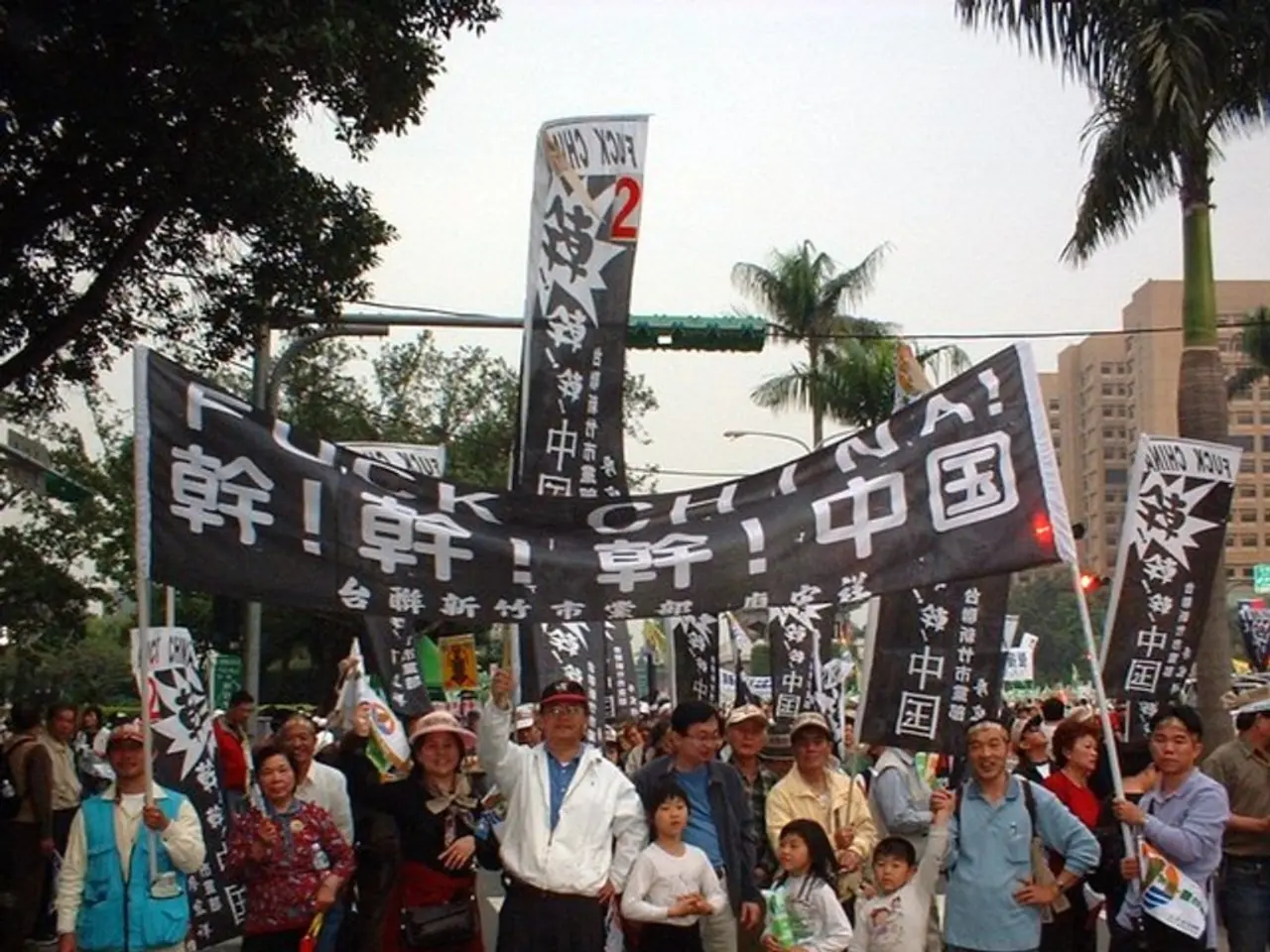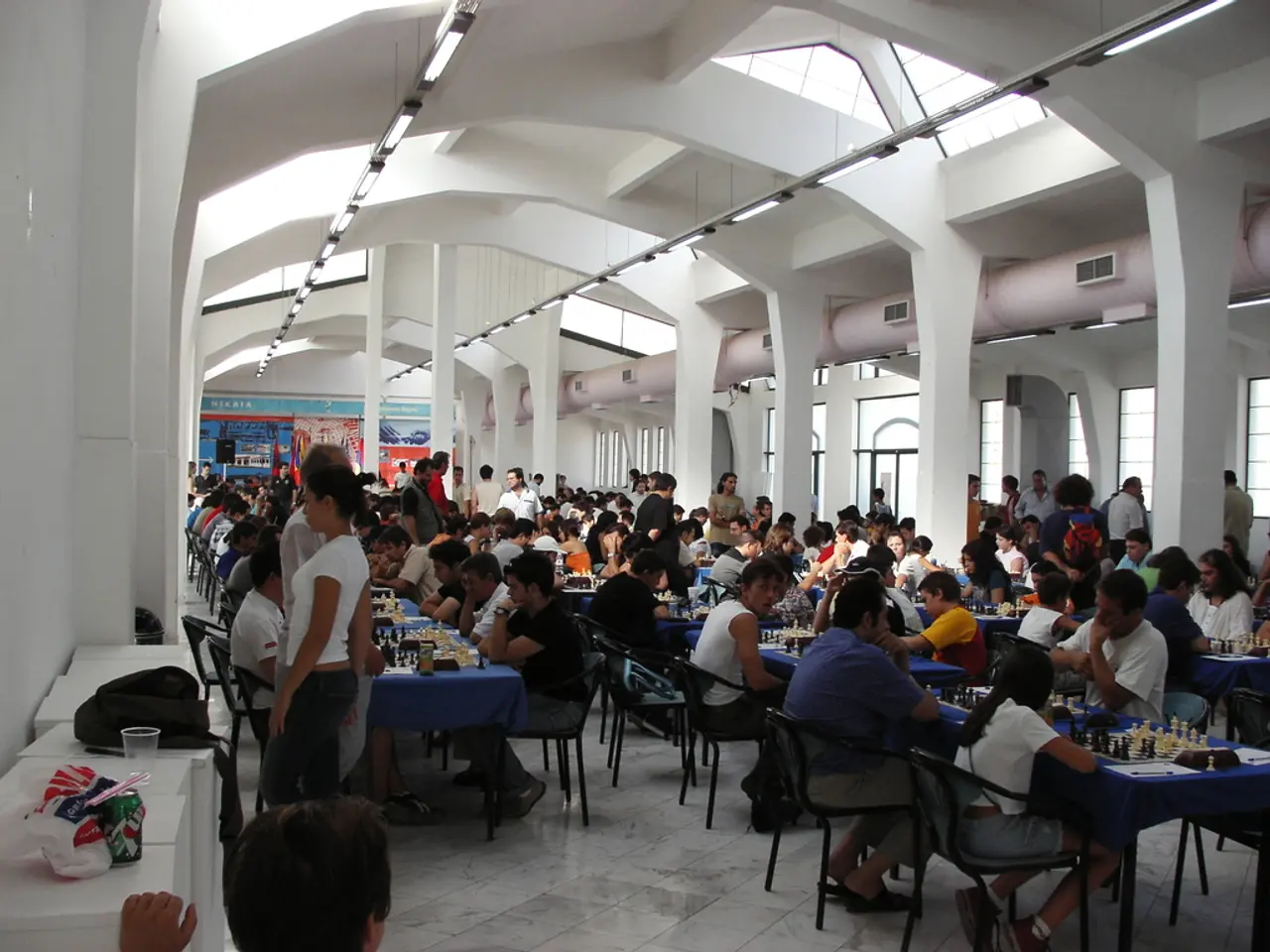Hungary proposes jail terms for EU officials who support the "Pride" movement's petition
In an unusual and contentious standoff, EU representatives are being warned by Hungary's government that participation in the "Pride Parade" in Budapest could land them in trouble - potentially facing criminal charges. This 'Pride' issue has been a hot topic in Hungary for quite some time, with its far-right government cracking down on LGBTQ rights in the name of 'child protection.'
The police have banned the 'Pride Parade' in Budapest, citing a recent law that restricts representations of homosexuality and gender reassignment to minors. In response, the city's government has announced its intention to defy the ban. Stakeholders from 33 countries have voiced their support for the event. Notably, five EU member states - Italy, Croatia, Slovakia, Romania, and Bulgaria - remained silent on the issue.
Hungary's Justice Minister has penned a stern letter to the ambassadors of several EU countries, making it clear that the ban on the Pride Parade is absolute, and any involvement would be considered a "criminal offense." Penalties could range from fines amounting to 500 euros to a one-year prison sentence. Keeping things crystal clear, the minister reminded the diplomatic missions to ensure their employees are fully aware of the situation.
The Budapest government's response came in the form of a public statement earlier in the week, expressing support for the event. In a surprising move, this time, five EU countries did not join the show of solidarity.
Controversial Hungarian LGBTQ Policies
The 2021 law enacted in Hungary bans representations of homosexuality to minors and effectively prohibits events deemed to violate these restrictions. This move has caused an uproar, with protests springing up in Hungary, and dissent growing amongst EU allies.
Hungary's prime minister, Viktor Orbán, has been a vocal opponent of LGBTQ rights for several years under the pretext of 'child protection.' The acronym LGBTQ stands for lesbian, gay, bisexual, transgender, and queer.
The attempt to ban the Pride Parade has sparked massive demonstrations in Budapest. Thousands of people have taken to the streets in protests and blockades, voicing their opposition to the government's stance.
[Source: ntv.de, jog/AFP]
- Hungary
- LGBTIQ
- Viktor Orbán
- Enrichment Data:
The ongoing controversy over the Pride Parade in Budapest is rooted in a 2021 amendment to Hungary's Child Protection Act that restricts public depictions and promotion of LGBTQ content to minors. Organizers argue that the ban is illegal and plan to proceed with the event as an official municipal celebration called the "Day of Freedom."
The Hungarian government, led by Prime Minister Viktor Orbán, has been relentless in its enforcement of the ban, issuing warnings to EU diplomats and threatening potential participants with legal repercussions. On the other hand, organisers claim that the event is legally approved by the city council and that the police have no right to prohibit it.
The European Union, headed by European Commission President Ursula von der Leyen, has strongly condemned the ban and urged Hungary to lift the restrictions. Human rights organizations such as Amnesty International and Human Rights Watch have also criticized the ban, citing violations of freedom of assembly, expression, and human rights commitments.
In summary:
- Status: The Budapest Pride Parade, planned as a municipal celebration, is officially banned due to a controversial law, but the organizers intend to proceed.
- Hungarian government stance: Firm enforcement of the ban and warnings to EU diplomats not to attend.
- EU response: Strong condemnation and calls for lifting the ban and respecting democratic values.
- Human rights perspective: The ban is seen as discriminatory and oppressive, with worldwide outrage against the potential use of facial recognition technology and the imposition of criminal charges.
This situation sheds light on the ongoing cultural clash between Hungary's conservative government and the EU over LGBTQ rights and democratic freedoms.
The European Commission, given the complexities surrounding Hungary's ban on the Pride Parade in Budapest, has been asked to submit a proposal for a regulation on the crime-and-justice aspect of this issue, emphasizing the general-news value of upholding human rights and democratic freedoms in war-and-conflicts-unrelated situations. However, the Hungarian government's politics, led by Prime Minister Viktor Orbán, remains firm on its stance, balancing the child-protection argument with potential legal repercussions for those involving themselves in the Pride Parade proceedings.






